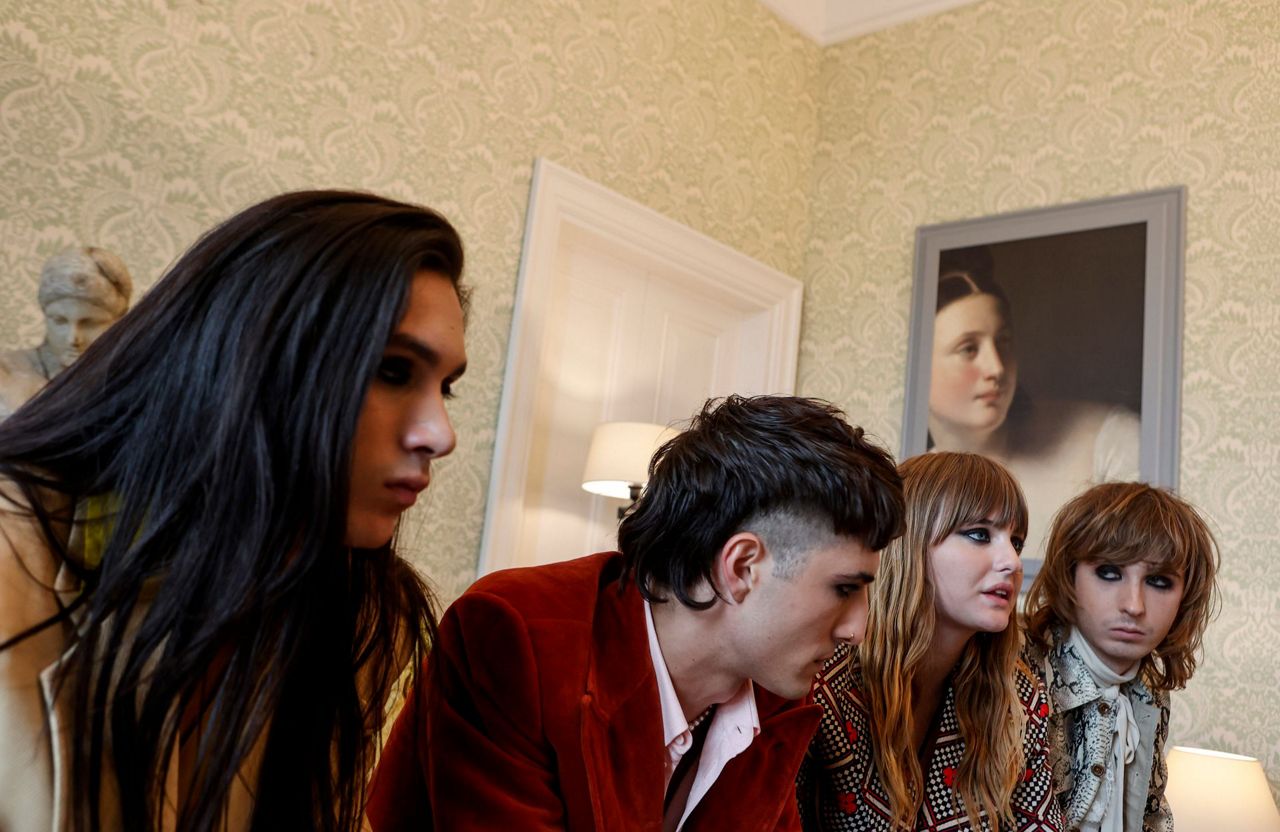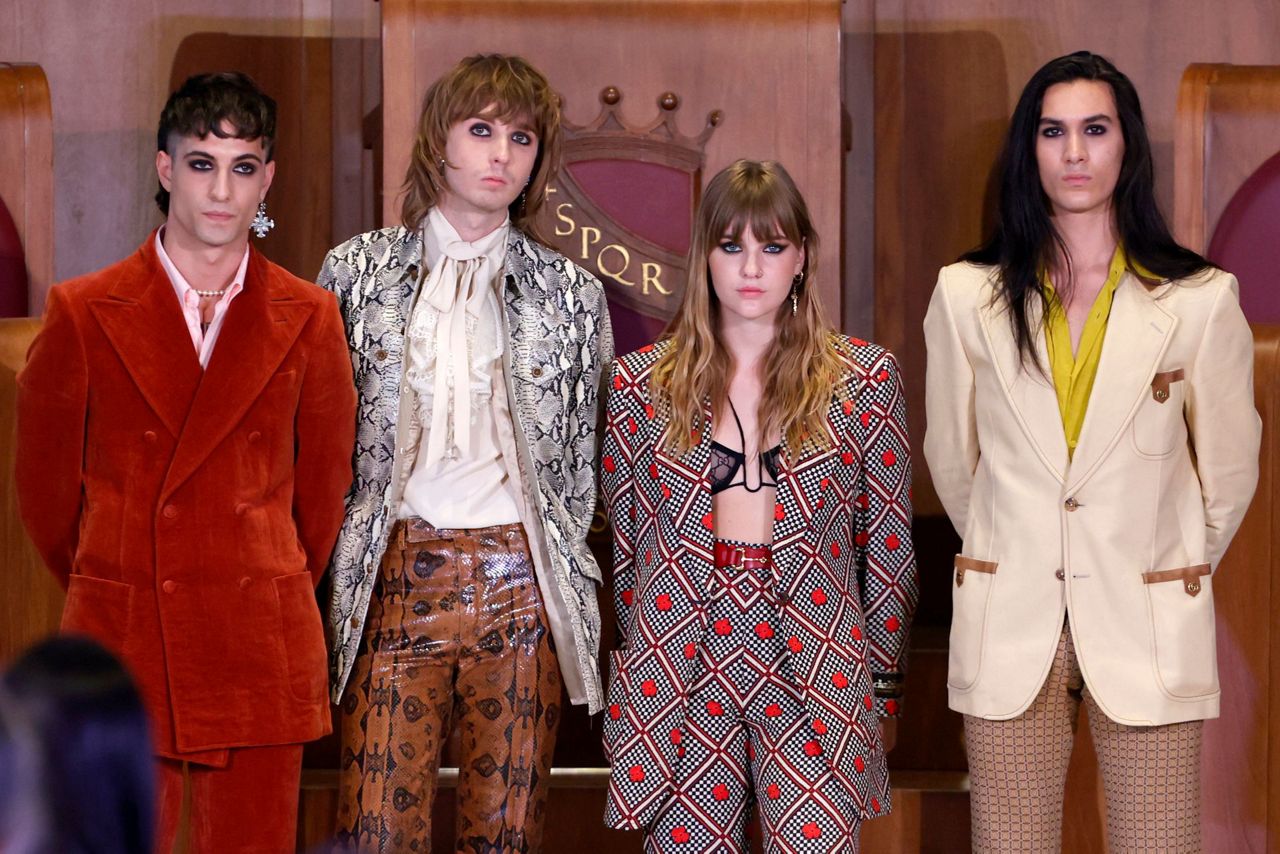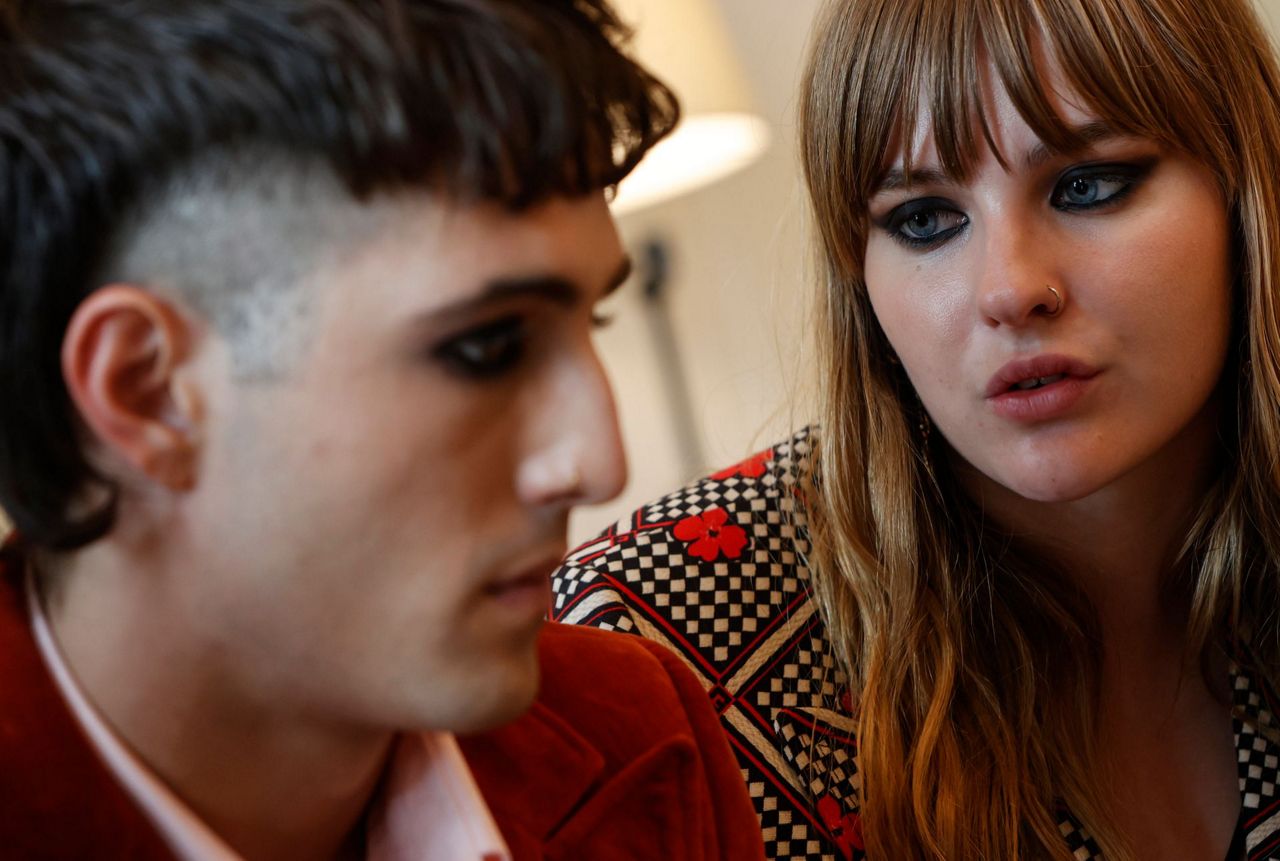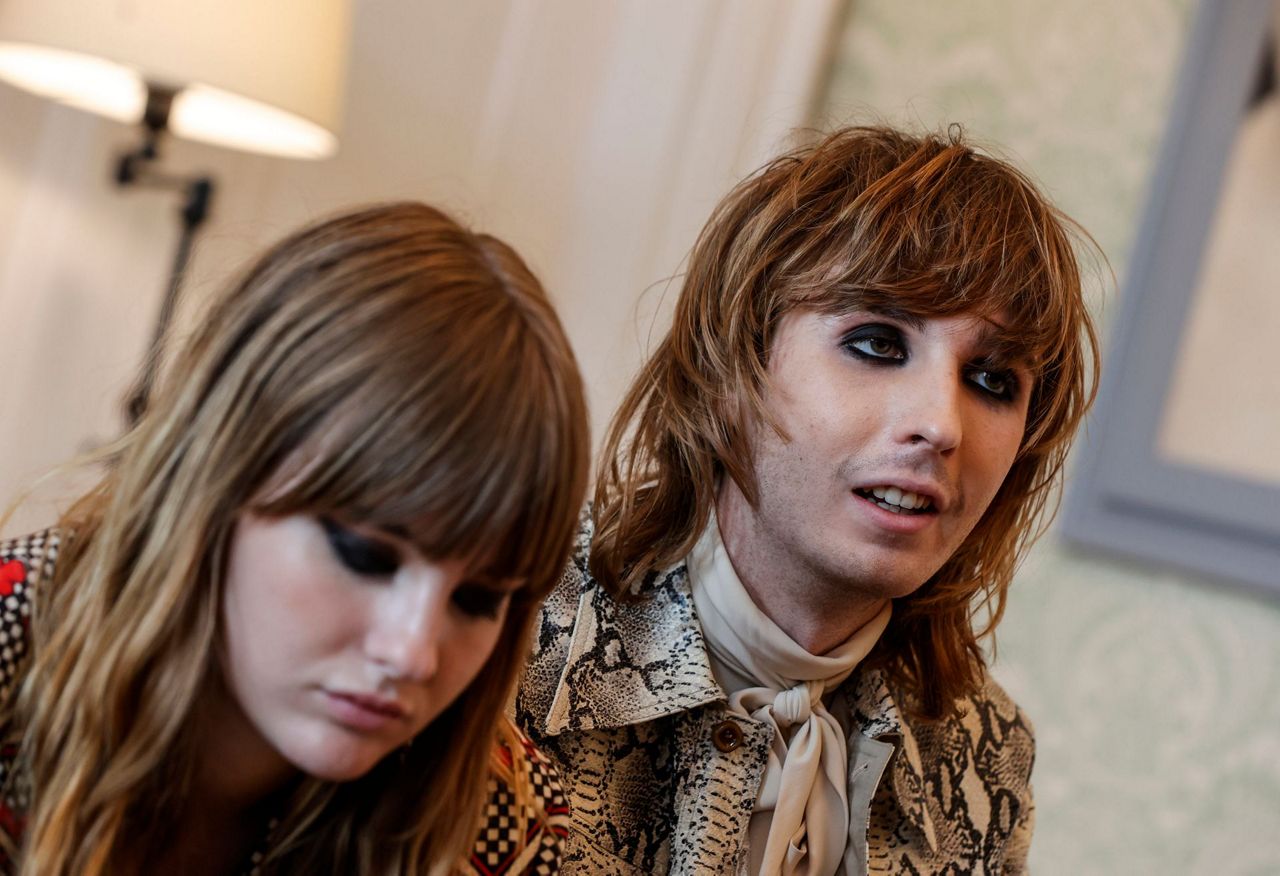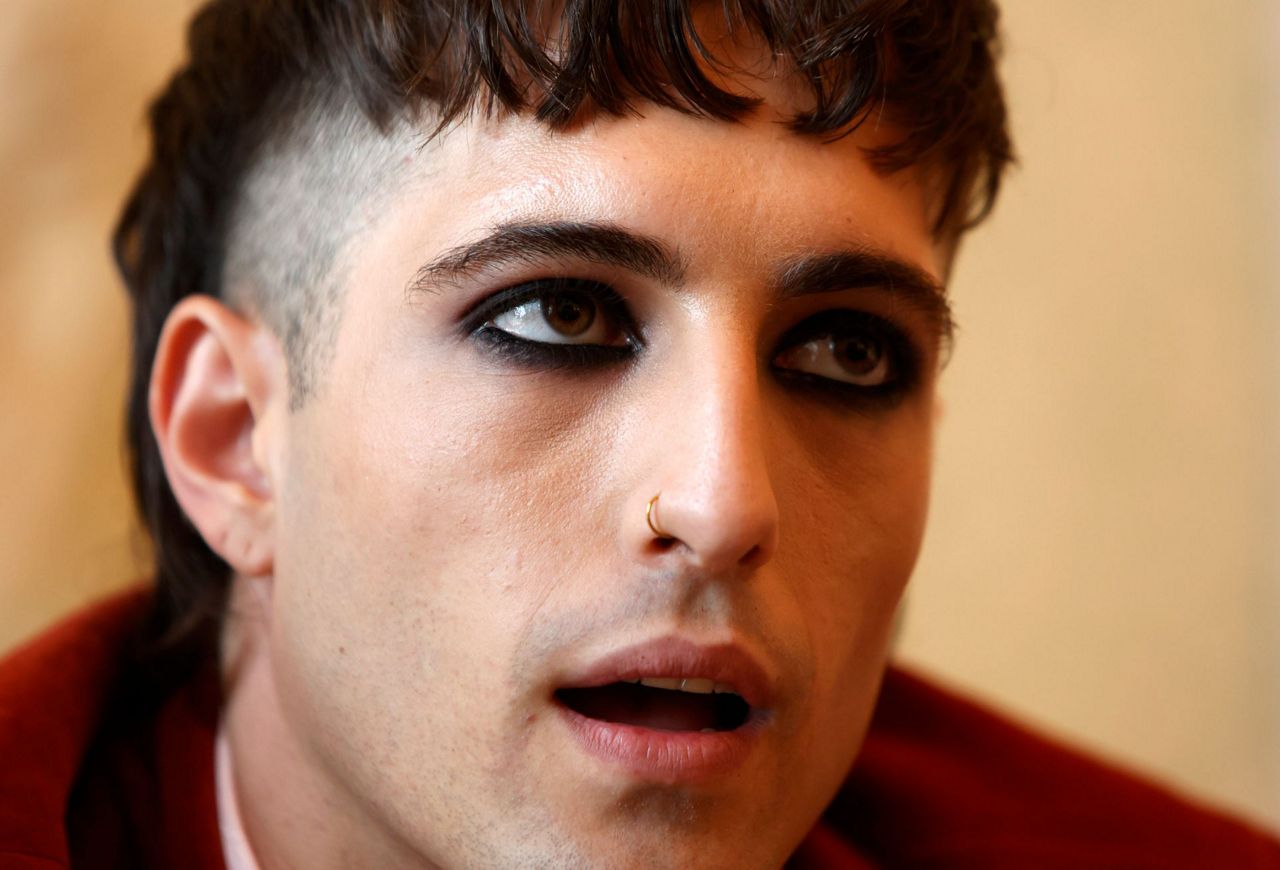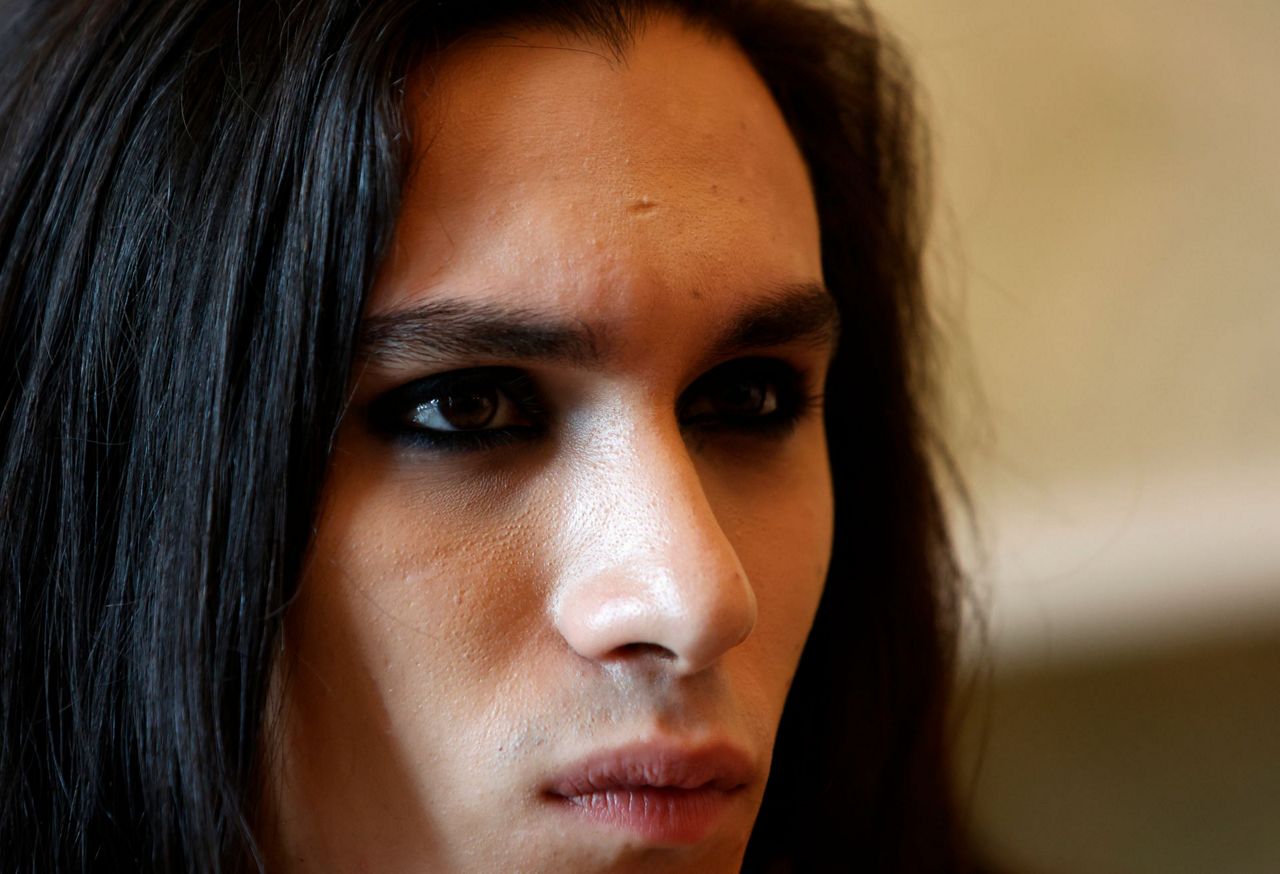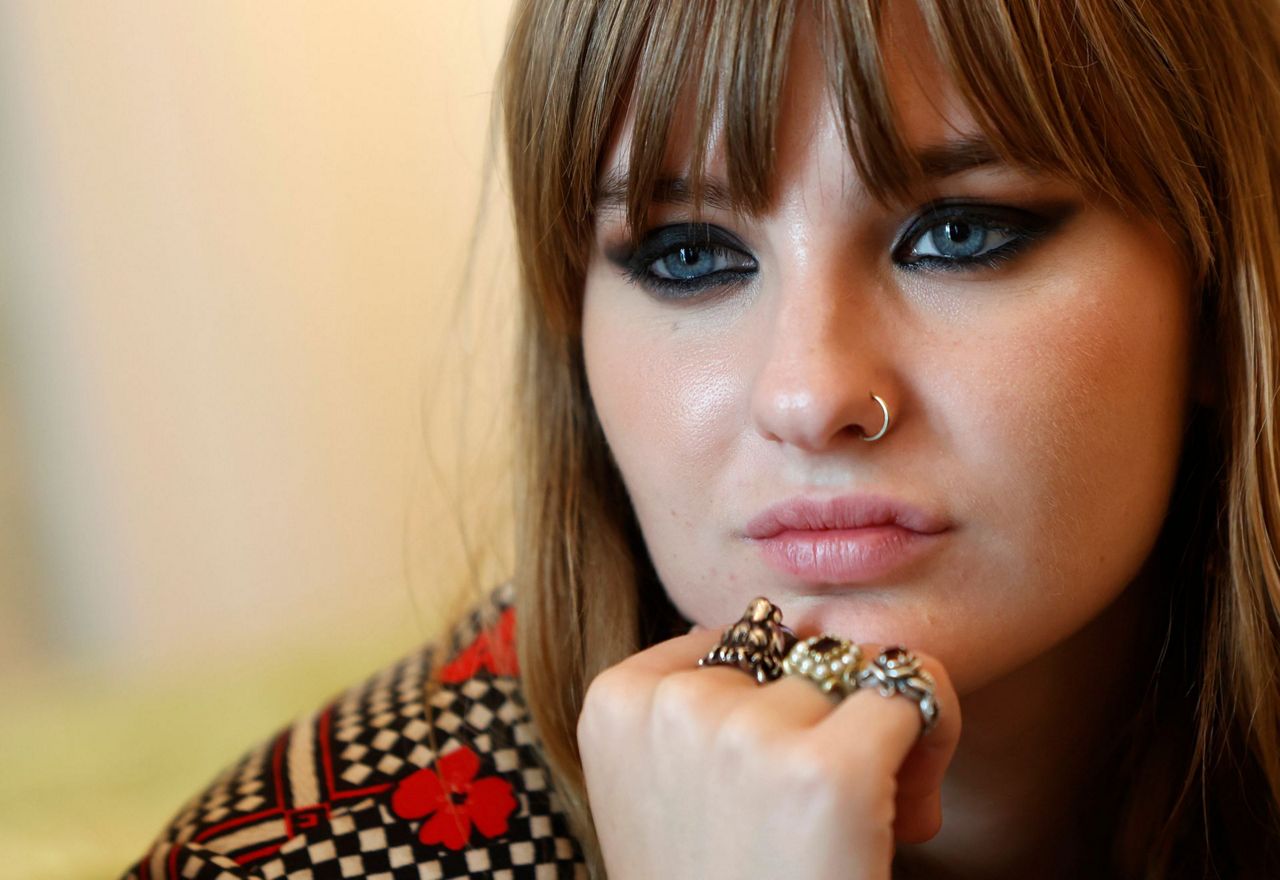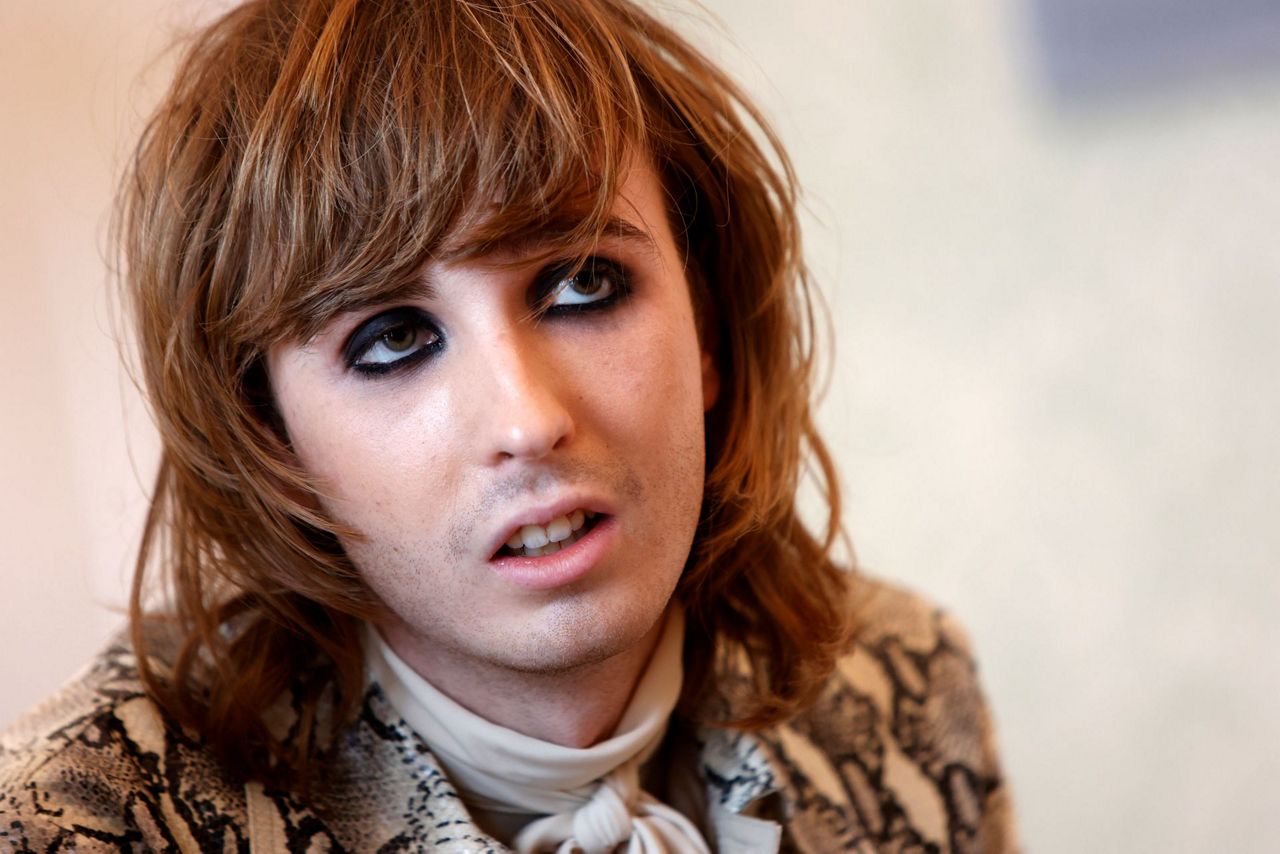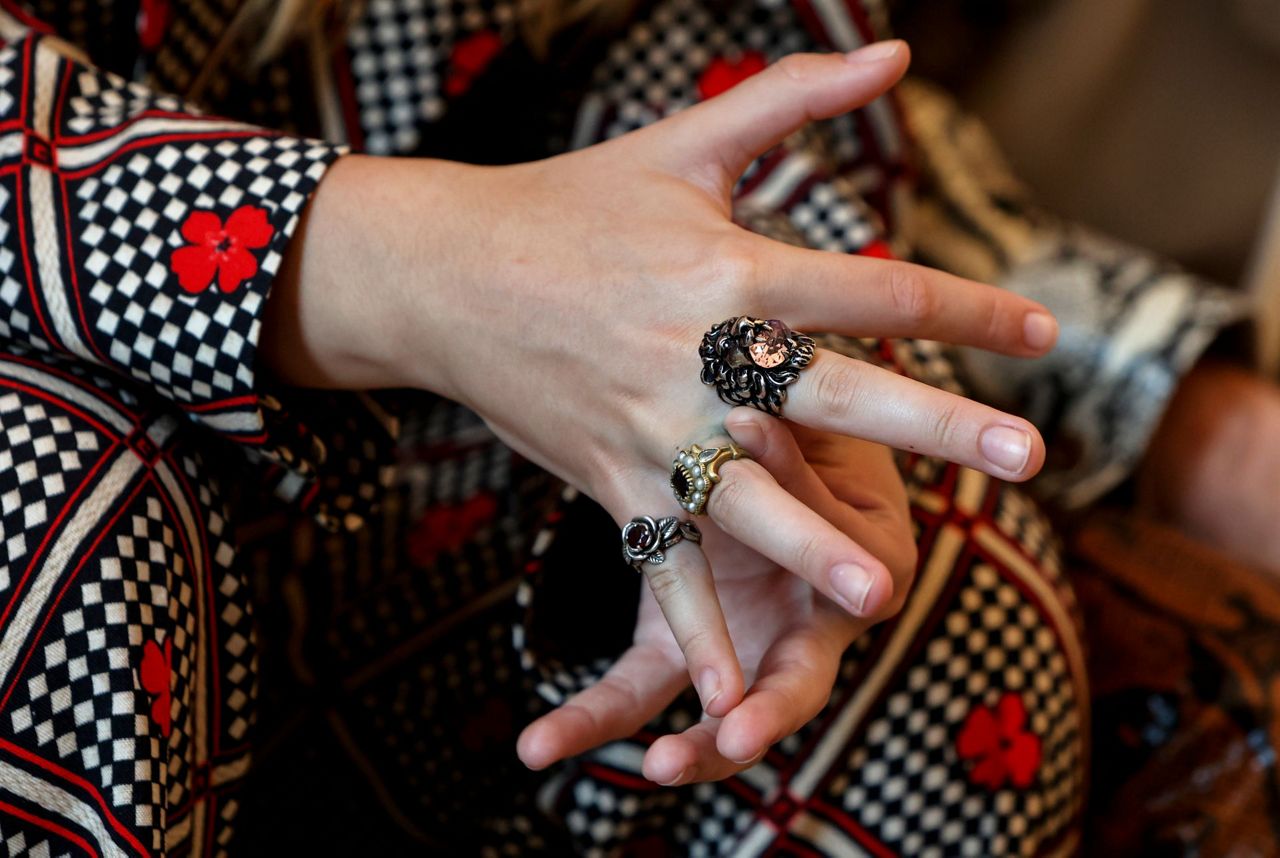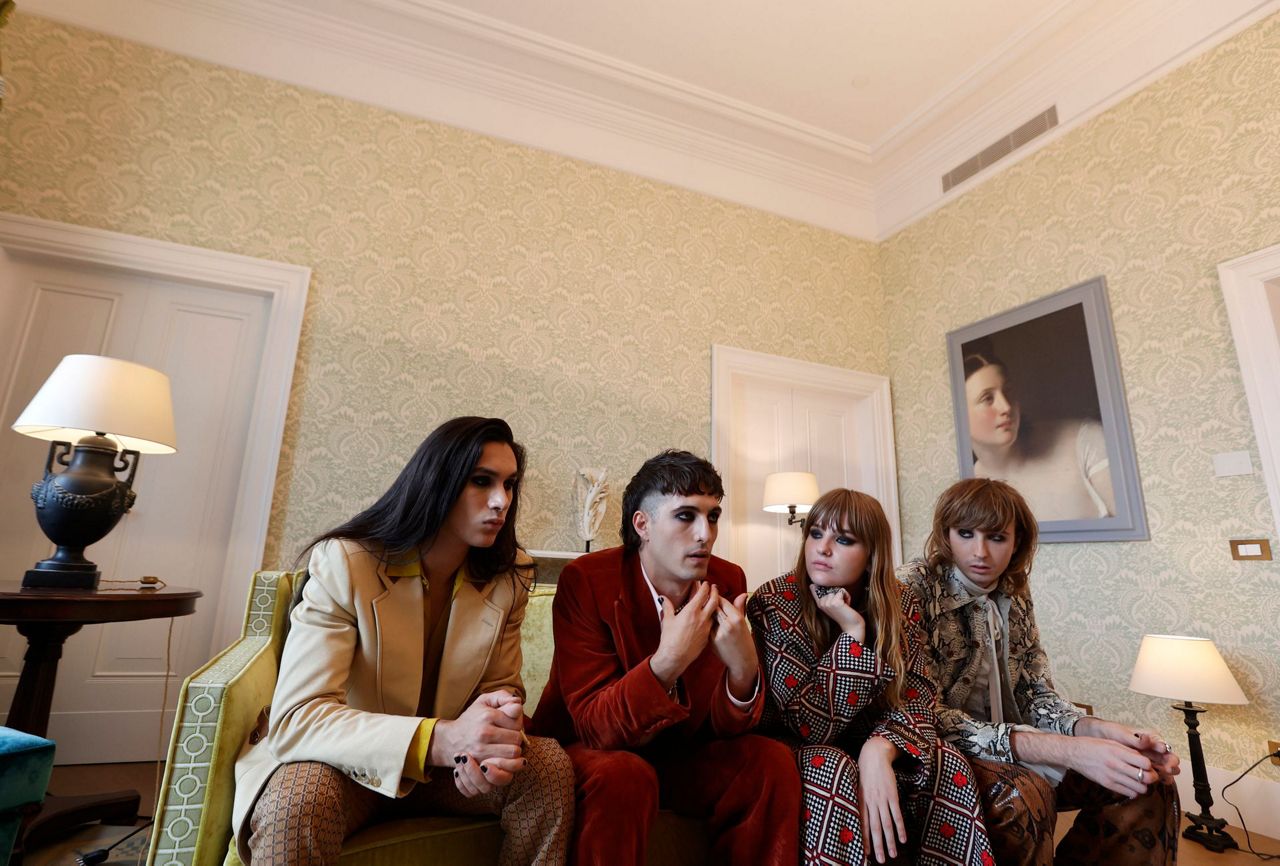ROME (AP) — Several years ago they were four teenagers busking in the piazzas of Rome. These days, the members of the rock band Maneskin are basking in adoration after triumphing in the Eurovision Song Contest and consistently riding high in Spotify charts.
With their androgynous outfits, in-your-face videos and what their lead singer calls “cathartic anger," they tell The Associated Press they're having a blast blurring stereotypes.
Taking a break from their high-octane artistic routines, Maneskin members sat still on a couch in a Rome hotel on Tuesday evening for a half-hour to reflect on how they plan to use their new-found fame.
“We feel free to wear whatever makes us feel right, and we are also trying to send a message about blurring all these kinds of stereotypes, between gender norms and stuff," said bassist Victoria De Angelis. “We think it's just fine to wear whatever makes you feel good with yourself.”
Whatever it is they do — defying neat categories in the process— music listeners love it. On the day of the interview, Maneskin's “Beggin'" was No. 1 on Spotify's global chart, with more than 6.8 million streams. Their winning Eurovision number, “Zitti e Buoni'' (Italian for ”shut up and behave") ranked 77th, with some 1.1 million streams.
In Italy, known more for exporting wine, cheese, Ferraris and designer fashions, not rock bands, Maneskin’s “I Wanna Be Your Slave” was getting nearly 300,000 streams.
When they started out, De Angelis, now 21; lead singer Damiano David, now, 22; guitarist Thomas Raggi and drummer Ethan Torchio, both 20, it wasn't easy to be a rock band in Rome.
“Let's say that, especially from the point of view of the situation of bands, especially emerging ones, it's not very easy,'' said De Angelis, who switched seamlessly between English and Italian. She recalled how they found it hard to find places and events where they could perform. So they started playing in the street.
David said the problem is especially true for bands, "while for individual artists, especially in the indie and hip-hop music sector, in Rome many new artists are growing.”
Hours earlier, Maneskin's members were mellow but clearly pleased as Mayor Virginia Raggi (no relation to the guitarist) gave out in their honor tiny replicas of the Lupa, the she-wolf foster mother who is a symbol of Rome, an appropriate award for a band blending genres.
Asked about their often angry lyrics, David said their dissatisfaction with the difficulty of native rock bands in Italy fed their determination to succeed. “We never agreed with this way of seeing it. This gave us the strength and the cathartic anger to change this kind of situation.”
Beyond their own evolution, Maneskin's rockers also reflected on Italian society moving forward, slowly.
Political debate has been raging over a stalled bill in the Italian Senate to expand hate-crime protection for those who are targeted with racism and anti-Semitism to include homophobia and transphobia. Right-wing leaders want provisions about gender identity removed from the bill.
With their generous use of eyeliner, painted fingernails, costumes defying gender stereotypes, and videos that feature female-male and male-male interactions, the artists constantly put gender identities up for grabs.
Their lyrics frequently span a gamut of possible identities and roles. “I wanna be a champion/I wanna be a loser,'' sings David in ”I Wanna Be Your Slave."
In the past, said De Angelis, “you just grew up being told who you are and who you should be. And you don't even get to get in contact with yourself and understand who you truly are or who you like." But now, she ventured, people are getting "a bit more open-minded."
At those words, David leaned forward and held two fingers close together to signal that open-mindedness in Italy still has a substantial distance to go toward equality for transgender and gay people.
Said De Angelis: “I think it is quite shameful that there is still no law to protect an entire category that is discriminated against on a daily basis.”
Torchio, on the shy side in much of the interview, vigorously nodded his agreement.
The band is eager to embark on an international tour after so many bans on big events during the COVID-19 pandemic and hope to capitalize on their Eurovision moment in the spotlight.
“After we won Eurovision, we had this huge amount of new opportunities, of course, to relate to this international audience, and we're really happy about it because it's what we always dreamt of,'' said David. ”So it's like a dream come true."
Organizers have announced Maneskin appearances in Lokeran, Belgium, on Aug. 5; Prague on Aug. 13; Gydnia, Poland, on Aug. 19; and Schijndel, in the Netherlands, on Sept. 4. The Netherlands event will take them back to their country where they clinched their Eurovision win.
Until they take the stage, the band will be practicing at least five hours a day, both together and individually,
“It is important to study your instrument and to be more expressive, more comfortable with your instrument,″ said Raggi, sounding a serious note.
Still, said De Angelis: “We really can't wait to get back on stage and finally to meet all of our new fans all around the world.”
Copyright 2021 The Associated Press. All rights reserved. This material may not be published, broadcast, rewritten or redistributed without permission.



